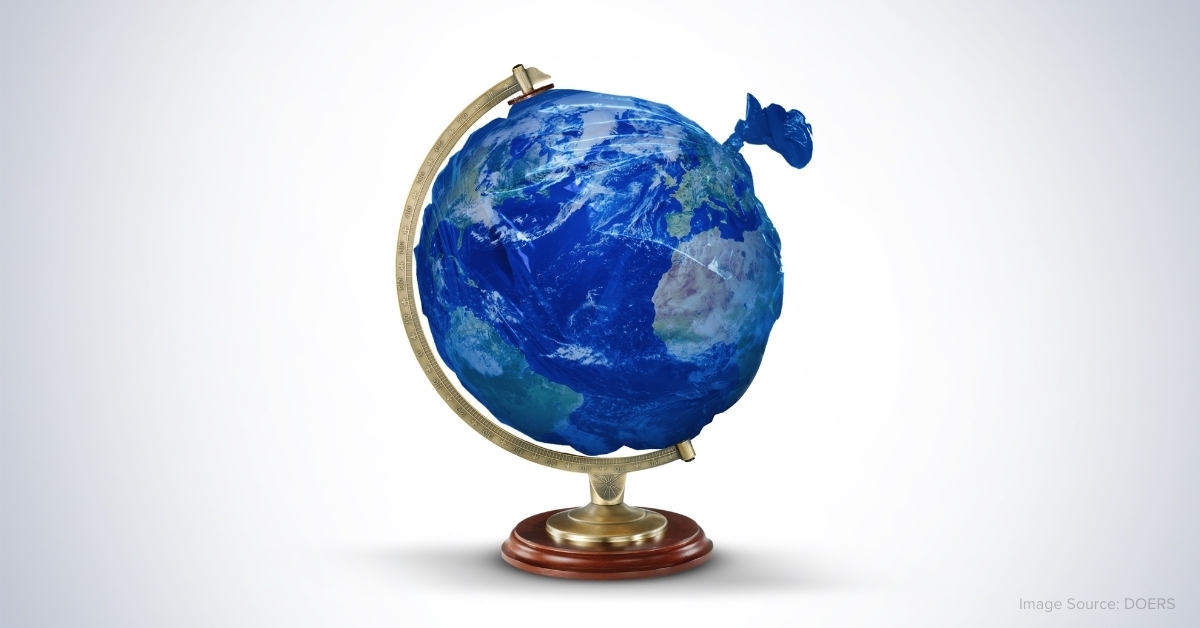
Published
March 30, 2023
Tags:
Can we really live a life without plastic? No matter how undoubtedly useful, plastics still end up in the oceans when discarded improperly.
Plastic has become ingrained into our daily lives that it’s almost impossible to live without it. People make almost everything we use today out of plastic, including mobile phones, water bottles, eyewear, packaging, and more. No matter how undoubtedly useful, plastics still end up in the oceans when discarded improperly.
Can we really live a life without plastic?
Is living in a plastic-free world achievable?

Now that plastics have integrated itself into people’s daily lives, it’s still possible to live in a world with less plastic. However, the price you need to pay and the changes you have to make are high. For one, plastic is cheaper than alternative packaging and a more adaptable one compared to its counterparts. But along with that benefit, when plastics decompose, they release harmful gasses into the atmosphere. Alternative packaging, on the other hand, breaks down within months without harming the environment.
The answer lies in the collective effort of the people. Some of the common ways to repurpose plastics are recycling, incineration, and landfilling. On the public’s end, minimizing usage of single-use plastics and cleanup drives in lakes and rivers reduce plastic waste. If people constantly make these efforts, everyone will benefit from a world with less plastic.
How a plastic-free world impacts the way we live
Now imagine a world and a life without plastic. It would be a nice world to live in. Here’s how an almost plastic-free world makes your life more bearable:
Cleaner air

The more plastic waste in the environment, the hotter this world becomes. Plastic is made of coal and crude oil and emits methane and ethylene once exposed to sunlight, which adds to the sweltering temperatures worldwide. These components are among the greenhouse gasses that pollute the air. With less plastic waste, less harmful gasses are emitted to the atmosphere which makes the air cleaner to breathe. And with clean air comes better health for everyone.
Preserved wildlife

Unmanaged plastic waste could affect wildlife both on land and on water. Sea creatures like fishes and turtles eat the plastic that’s discarded at sea when they mistake it as their prey. These creatures die when their guts are filled with plastic. On land, animals that get trapped in plastics end up injured and unable to breed naturally, which leads to depleting populations. By managing plastic waste and preventing them from ending up in the oceans and anywhere in the land, animals stand a better chance of getting preserved for the coming years.
Less health hazard for humans

Plastics, microplastics to be exact, can affect you in more ways than one. These little plastics are everywhere—they float around the air and stored in the guts of the seafood we consume. Studies show that microplastics cause oxidative stress and DNA damage to humans. When plastic waste is properly managed, the chances of consuming it from seafood and inhaling it from the air are minimized. Properly managing plastic waste minimizes the chances of consuming it from seafood and inhaling it from the air.
The demand for alternative packaging to plastics

For many years, plastic has been the most convenient and widely used, yet the most harmful, packaging today. But as plastics continue to pollute our lands and waters, it’s time to slowly ditch them and make way for sustainable alternatives, such as paper and corn starch bags. The demand for sustainable packaging rose to 81% as of January 2023, according to UK-based packaging company Protega Global Limited. In addition, this fairly excellent number is a sign that more people are clamoring for sustainable packaging practices. As for overuse, it is yet to be determined if these alternatives will be overused as people slowly get rid of plastics.
Get affordable recyclable packaging at Oikos

Plastic is a huge part of daily existence—from packaging, common items, to electronics. Although it’s impossible to totally get rid of plastic, living in a world with less of it means ramping up efforts to practice sustainable habits and slowly putting old practices to rest.
And if you’re looking for alternative packaging to plastic for your eco-friendly business, Oikos Sustainable Solutions is the place to be. Secondly, we have bags made of corn starch and cassava that decompose after six months within good conditions. Additionally, Oikos is the country’s first and only recyclable packaging manufacturer to receive an Environmental Technology Verification from the Department of Science and Technology. Be a sustainable business in the Philippines when you use our biodegradable packaging for business. Click here to learn more.
Facebook
Linkedin
Twitter
Pinterest
